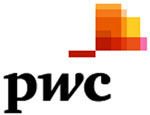A South African entertainment and media outlook, consisting of annual historical data for 2005-9 and 2010-14 forecasts - Internet, TV, filmed entertainment, radio, recorded music, consumer magazine publishing, and consumer and educational book publishing - was released yesterday, Thursday, 14 October 2010, in Johannesburg by PriceWaterhouseCoopers (PwC).
The report ("The Outlook"), which also includes newspaper publishing, business-to-business publishing, out of home advertising, video games and sports industries, contains some interesting trends.
It shows that, although the South African entertainment and media (E&M) industry's total spending grew by 1.8% in 2009, in contrast to the 1.8% decline worldwide, this figure was still far from equalling the 8.5% growth of 2008, as the bed-ridden industry was still nursing the wounds inflicted during the global economic recession.
Unexpectedly fast
Consumers worldwide were migrating unexpectedly fast towards the digital, says the report, noting that it was unlikely SA digital media will dominate in the forecast period, despite growing at a considerable pace.
"Non-digital revenue streams are expected to be much higher and will still account for 69.1% of total SA spending in 2014."
Advertising fell 14.3% in 2009, says the report, stating that consumer and end-user spending countered this effect with a booming box office market, continued growth in TV subscription spending and a jump in broadband spending.
The Internet market was still in its development stage, despite a surge in the number of households using broadband, according the report.
"Broadband is not happening"
"I am afraid that broadband is not happening in SA," Gerdus van Eeden, MultiChoice chief technology officer, said yesterday, speaking at Montecasino in Fourways, Johannesburg. "SA is lagging behind. We see people digging out streets but that is mainly aimed at connecting offices, but almost nothing is happening in our homes, and I am worried about that."
"It will take a long time in SA because even what is happening is mostly skewed towards a low quality wireless. However, we don't see any digital development as a threat to our business. I think we will adapt accordingly."
Draftfcb Johannesburg's Jerry Mpufane said part of MultiChoice's success was that the SABC was failing to do what it was meant to do. "If the SABC was doing it properly, we would be having another conversation - a real one - right now."
The PwC report also revealed that less than 10% of households had a broadband connection in 2009, but it forecasted that it may quadruple over the next five years.
Clear sign
There were more than 1.3 million mobile broadband users in 2009 in SA, compared to 800 000 fixed broadband users. When including the 3.2 million dialup users, the total number of Internet users was only 5.3 million, according to the report, a clear sign that SA was not doing as good as it is supposed to be doing - as someone in the audience put it.
Kagiso Media's Omar Essack said there is a need to try new things to see if people will like it or not. "We are watching consumer behaviour, especially young people and our own children. If they don't react, it means that we are not in their space, so we are left behind."
According to the report, mobile broadband will be the fastest-growing technology over the next five years, with an expected increase of 50.7% or 10.1 million users by 2014. By 2014, it explains, 72% of broadband users will access the Internet through mobile devices and 63% of all Internet users will access it through mobile devices.
Video games enjoyed a 13.4% growth in 2009, second only to the Internet, which witnessed a 29.8% increase in the same period. Sports revenue increased 5.8% in 2009.
New tech, new competitors
New technology such as mobile broadcasting will see new competitors enter the market which will generate an additional advertising stream, projected to reach R15 million by 2014.
.
The Outlook projects public TV license fees to increase by 0.9%, compounded annually from R1.02 billion in 2009 to R1.07 billion in 2014. Broadcast advertising will expand at a 9.6% compound annual rate during the next five years to R11.9 billion in 2014, from R7.5 billion in 2009.
"This is a journey," Marcel Fenez, PwC global managing partner of entertainment and media, said, adding that local language content was absolutely important.
For more, go to www.pwc.com/za/outlook.






































